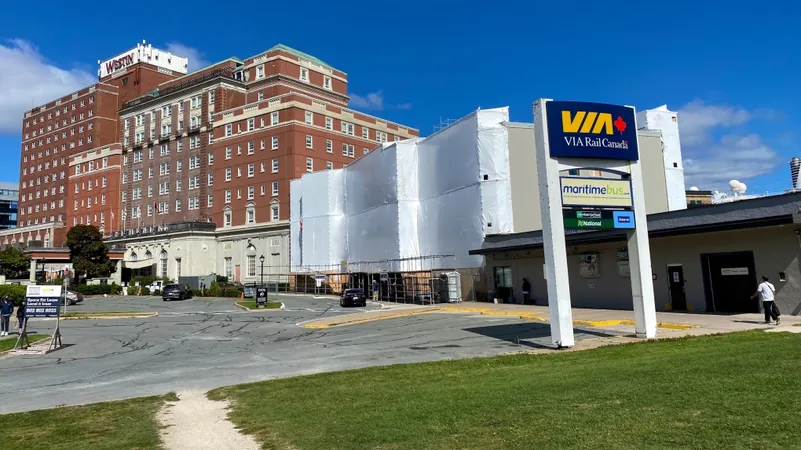
Passenger Traffic in Halifax Surges, But VIA Rail's Late Trains Raise Eyebrows – Is It Time for a Greener Revolution?
2024-09-23
As passenger numbers continue to rise in Halifax, VIA Rail faces a significant challenge: delays caused by freight operators who control the tracks they use. With last year's records showing 13,000 passengers arrived by train in Halifax, VIA Rail President and CEO Mario Péloquin points to a promising trend, expecting an impressive 15% increase this year. This uptick is not just a statistic; it represents a crucial opportunity for growth in the Halifax region.
Speaking at a Halifax Chamber of Commerce luncheon, Péloquin outlined VIA Rail's ambitious 2030 vision, aimed at modernizing and enhancing the travel experience. However, a significant hurdle looms: VIA Rail owns a mere 3% of the network on which it operates across Canada. In the Maritimes, notably, they do not own any tracks, meaning they depend entirely on freight companies like CN, who prioritize their commercial needs over passenger services.
The implications of this arrangement are stark, as seen by the daily frustrations faced by travelers. Ted Bartlett, a former president of Transportation Action Atlantic, expressed his frustration, noting that Train 14 from Montreal to Halifax often arrives a staggering four hours late due to freight delays. "It's scandalous," he declared, highlighting the negative impact on passenger services and the reliability of the rail network.
Infrastructure issues in New Brunswick further compound these delays. For many residents, particularly in areas with limited public transport, VIA Rail is often the only viable travel option. "There are arguably more New Brunswickers using VIA Rail than Nova Scotians," Bartlett emphasized, underscoring the crucial role the service plays in the region's transportation landscape.
Despite these challenges, VIA Rail is actively working to negotiate improvements with CN and the government. Péloquin stated, "We are in discussions with CN and the government to see what we can do to remedy this kind of problem." While these talks continue, he reassured passengers that the company takes pride in its customer service offerings. “You’ll get to your destination—and likely late—but the experience, they say, will be exceptional,” he remarked with a hint of irony.
Excitingly, Péloquin also hinted at future advances, predicting that upgraded trains could be operational on the Ocean line within the next five years. But as the demand for passenger rail travel continues to surge, one must wonder: Is it time for a radical transformation of Canada’s rail system? Could focusing on greener technologies and improved infrastructure signal a new era for rail travel in Halifax and beyond?
In summary, while the growth in passenger numbers is encouraging, the path forward for VIA Rail will require overcoming significant hurdles with track access and reliability. The future of rail travel may hinge on how effectively the corporation can advocate for the necessary changes in a freight-dominated landscape.









 Brasil (PT)
Brasil (PT)
 Canada (EN)
Canada (EN)
 Chile (ES)
Chile (ES)
 España (ES)
España (ES)
 France (FR)
France (FR)
 Hong Kong (EN)
Hong Kong (EN)
 Italia (IT)
Italia (IT)
 日本 (JA)
日本 (JA)
 Magyarország (HU)
Magyarország (HU)
 Norge (NO)
Norge (NO)
 Polska (PL)
Polska (PL)
 Schweiz (DE)
Schweiz (DE)
 Singapore (EN)
Singapore (EN)
 Sverige (SV)
Sverige (SV)
 Suomi (FI)
Suomi (FI)
 Türkiye (TR)
Türkiye (TR)